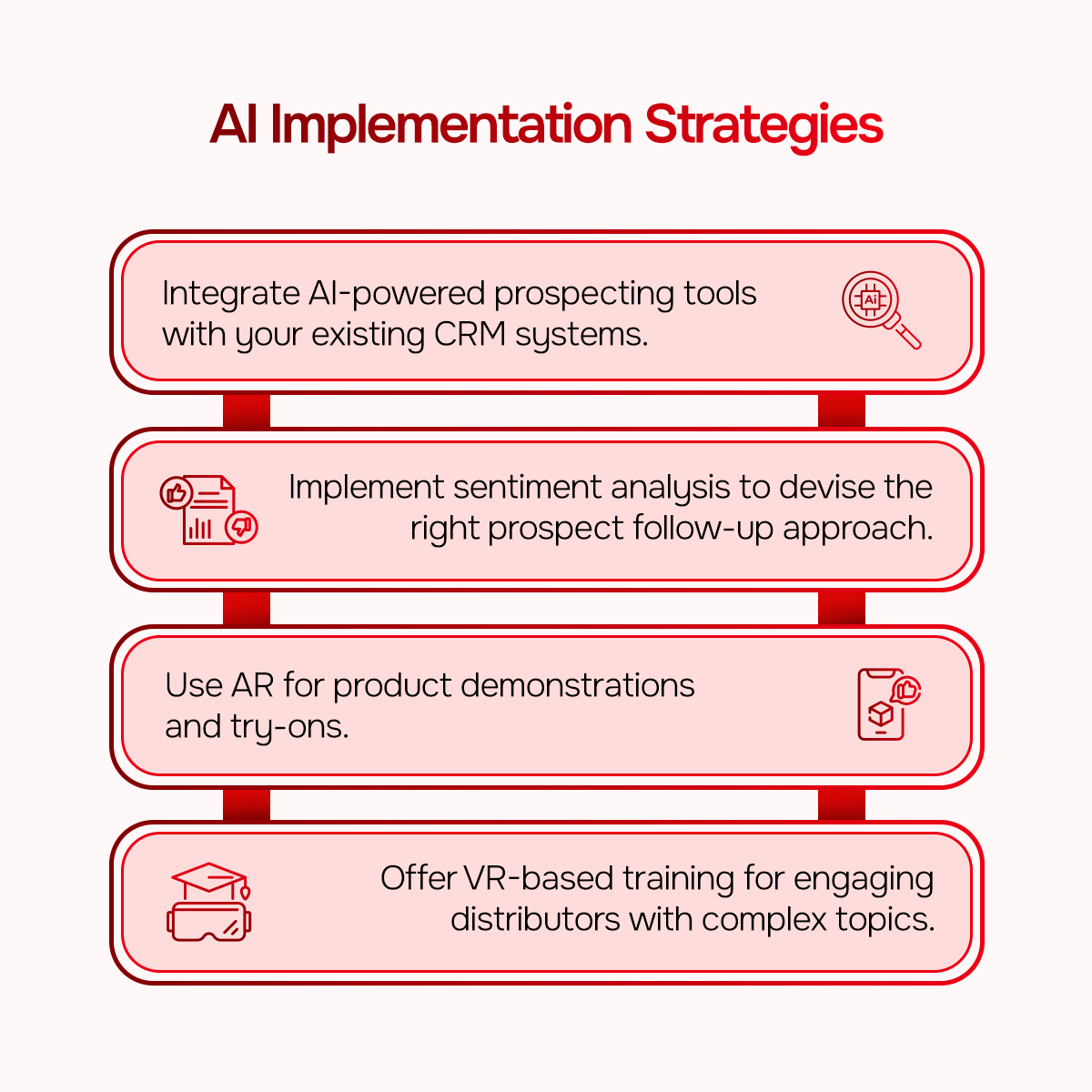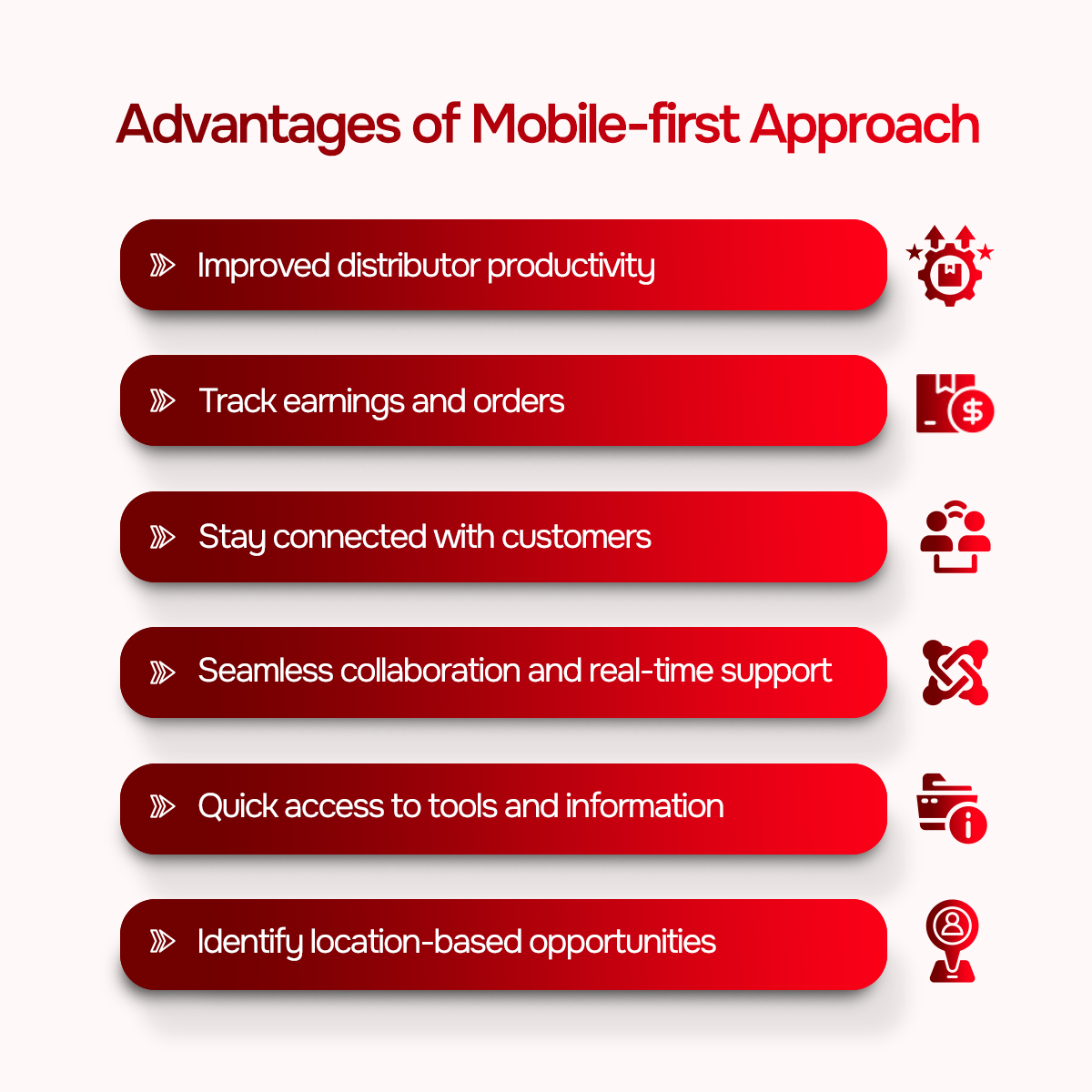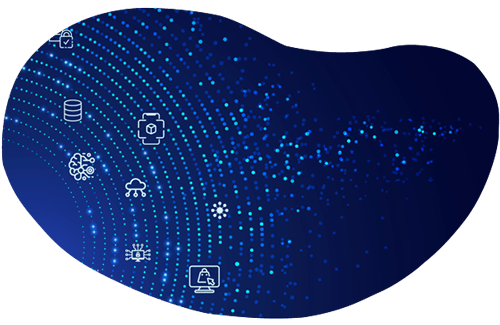Relationship building and network expansion are two different yet connected concepts in multi-level marketing. The former depends on the skill of the sales force and the latter on the company’s ability to adapt to emerging technologies and innovation. Multi-level marketing industry has seen it all, the quiet entrance of AI and automation, the trends of subscriptions, social commerce, and blockchain, at just the spin of a decade or two.
The convergence of relationship building and technology in MLM now lays the foundation for success and sustainability. Today’s MLM entrepreneurs are not confused between choosing traditional and digital strategies, they understand the need for adopting advanced technologies and building authentic relationships.
Advanced AI technology integrations over surface level adoption
MLM companies have put technology integrations atop their list of business optimization imperatives. Everyone understands the need to have a really strong and advanced technological infrastructure, but is it done right?
Implementing just any technology wouldn’t nail the bet. Technology has to complement your business needs to yield the best results. So, it’s not just any technology, it’s choosing the right technology for the right process.
Artificial Intelligence must be integrated into various MLM processes where its predictive capabilities and analysis skills help improve process efficiency and open possibilities for optimization. AI for prospecting identifies prospects, analyzes their behavior, and recommends messaging approaches and engagement strategies. AI and its subset technologies can bring commendable improvements in MLM processes and distributor performance.
- Natural language processing tools provide relevant and human-like responses to prospect or customer queries through conversational chatbots.
- Advanced sentiment analysis helps understand prospect sentiments to create effective follow-up strategies.
- Machine learning algorithms continuously monitor interactions and create feedback processes to perfect recommendations without the need for manual input.
- In-person product demos can be replaced with computer vision technology that brings the same appeal and experience with vivid product representations.
- Product try-ons with Augmented Reality improve customer confidence while making purchases and reduce return rates.
- Introducing VR in complex training topics can engage distributors to understand and complete training programs efficiently.

Blockchain becomes a necessity for establishing trust and transparency
Businesses operate on investments and manpower but there are these two factors that let them stay, trust and transparency. Especially in businesses like MLM, distributor and customer trust can be achieved only through transparent processes. That said, the MLM process that demands the most transparency is commission management.
Blockchain in commission management can effectively maintain the needed trust and transparency with transaction records that cannot be manipulated by anyone in the system. Automated smart contracts can initiate a consent approval process from both the transacting parties before processing commissions. Audit trails can offer distributors complete visibility into the compensation process as to how and when their commissions are calculated. This fairness reduces disputes and confusions in the MLM payout process which had been a real concern for businesses in the multi-level marketing industry.
The recent advancements in blockchain such as Decentralized Autonomous Organization (DAO) principles and tokenization are creating new waves in organization management. Implementing DAO principles in MLM businesses gives distributors the chance to cast their opinions on decision making matters related to policy changes, product selections, and management decisions.
Tokenization of distributor achievements and contributions creates a fresh sense of value where these tokens can be traded or converted to rewards preferred by the distributors. Further developments in tokenization favor sustainability by helping companies implement carbon credit integration for environmentally responsible distributors. These sustainability tokens can be achieved through sustainable business practices and can be traded against preferred rewards.
Blockchain Applications to Uphold Trust and Transparency
- Automated smart contracts for accurate and transparent payout process.
- Tradeable tokens to create value-based reward process.
- Implement DAO principles in organizational strategies to embrace community governance.
Social commerce defines the future of global MLM growth
Social commerce makes it easier to reach a wider audience in a short span of time. And well, if your analytics platforms are really capable then you get to connect with the right audience in the right market. Creating new purchase experiences for customers through live streams and promotional posts forms the basis for building relationships on social platforms. New advancements in the trend add more meaning to these micro-moments of relationship building.
Social listening tools monitor conversations across platforms to help companies and their sales teams pitch in just when a customer needs a related product or service. Live commerce platforms also add to the effort with new split screen features where distributors can display products on one and show customer testimonials on the other. These interactive selling sessions create an engaging shopping experience by letting customers shop without leaving the live stream. These act as a great reliable source of market and customer data.
The data thus acquired when processed through advanced social commerce analytics systems offer distributors accurate demographic information, content performance insights, and conversion patterns on each social media platform.
Social Commerce Strategies for 2025
- Practice social listening to identify relevant sales opportunities.
- Live stream product demonstrations and customer testimonials with split screen techniques.
- Implement shoppable video content with hotspot technology for live conversions.
- Integrate social commerce analytics to understand audience engagement in various content formats.
Flexible subscription programs enhance customer-brand relationship
Subscription programs are a staple sales feature in present day businesses. But it has changed a lot, since its inception, from being a mere revenue generating feature to a loyalty generating one. This shift is one of value rather than profit. MLM companies tailor their subscription programs based on usage patterns, loyalty levels, and market conditions. This personalized effort to customer engagement spikes loyalty and revenue from each subscriber.
Subscription services are best paired with predictive analytics which foresee customer needs before customers actually express them. Advanced analytics systems track the consumption patterns of customers, the seasonal variations in purchases, and personal events to recommend modifications.
Most companies offer pause-and-release options in subscriptions to pause or skip a particular product on subscribed dates and release it whenever they need it. The pause-and-release option are preferred by customers as they do not have to cancel their subscriptions but still can enjoy the discounts and other benefits.
The new age concept of “subscription families” is also gaining so much attention for the premium privileges offered. The concept works with a group of connected products in which purchasing one product from the group gives the customer special discounts or offers for other products in the group. An increase in average order value comes along as an advantage to the strategy.
Innovation and Flexibility in MLM Subscriptions
- Tailor programs to benefit individual usage and customer loyalty levels.
- Integrate predictive analytics to meet future customer needs.
- Offer pause-and-release options to reduce subscription cancellations.
- Develop subscription families to increase average order value.
Real business wisdom with data analytics
Behavior, demographics, and psychology go hand in hand when analyzing market and customer segments. Real business wisdom unfolds when all three are confronted with advanced analytics systems. Tracking prospect behavior through their browsing patterns, purchase history, and interactions helps distributors get a fair idea on how and when to approach their prospects.
Predictive analytics can predict the lifetime value of customers and distributors through close analysis of customer engagement and distributor activity. Churn predictors alert businesses of a possible churn by analyzing metrics such as engagement drops, purchase declines, and social media sentiments.
Network wide analysis even detects distributor skill gaps, support needs, and collaboration inefficiencies that affect growth and performance. In the light of these detailed analyses, organizations can develop new strategies for training and mentorship based on real data not assumptions.
Applications of Data Analytics
- Employ behavioral segmentation with prospect psychology analysis to develop personalized outreach strategies.
- Predict the lifetime value of customers and distributors to prioritize them and reduce chances of churn.
- Establish churn predictors to devise prompt retention strategies.
- Use network analytics to detect problems and assign mentorship programs within the network.
Build real influence and trust through content creators
Distributors are more than just sellers, they are content creators who convey the value and quality of the brand to its customers. Promotional sales pitches of the past are now more professional, influential, and appealing through videos, posters, and presentations that educate prospects about products and brand value.
Modern day content approaches require distributors to know about audience preferences, market trends, and preferred channels. Product and skills training makes distributors experts in promotion while standing within the limits of compliance and customer privacy. This creates a trustful bond between distributors and prospects leading to higher conversion rates and long-term customer relationships.
Content analytics systems enhance distributors’ content efforts by pointing out high performing content formats and channels. And with that, distributors can plan content that balances engagement, entertainment, and education.
Content Strategies for MLM businesses in 2025
- Educate your audience on the value and benefits your products bring before pitching in for sales.
- Train your distributors to be product specialists to build trust and confidence among prospects.
- Curate content suitable for different platforms and prospect segments.
- Mix engagement, entertainment, and education in just the right amounts to your content strategies.
Proactive compliance technologies for efficient business guidance
The need for technology in a direct selling business extends beyond operational management. Direct selling businesses are established amongst so much skepticism and regulations. Setting the compensation plan weighs on one side of the balance and data security and compliance on the other. Maintaining a safe balance determines the lifespan of the business.
Regulatory technology innovation and machine learning scans a brand’s marketing content for possible compliance violations and alerts the admin or content moderators before it is published. These advanced compliance management systems train distributors on compliance policies based on regions and industries and help businesses protect data and assets against non compliance.
RegTech Innovations for Multi-level Marketing Businesses
- Scan every content and claim for non compliance before it leaves your system.
- Use AI-powered compliance moderation to manage compliance across different regions.
- Set up automated compliance training for distributors and track progress.
- Spot distributors who need additional support through violation pattern analysis.
Discover how we build resilient businesses with advanced MLM functionalities
Personalized growth and development with AI
Setting the career development path straight for your distributors counts in for long term retention. Distributors who are well trained and well equipped with the right tools feel important and responsible for your brand’s growth.
Bringing AI into this development stage can enhance growth and performance in a rather interesting way. Artificial Intelligence-powered training sessions consider various factors such as skills, learning style, and communication preferences before recommending a training program. NLP technology in distributor training segments distributors based on their leadership and mentorship qualities to find future MLM leaders.
With predictive analytics taking up the training lot we can identify the right mentor-mentee pairs for a more impactful training and support process.
Team Development with AI
- Recommend personalized training programs based on individual distributor attributes.
- Analyze distributor communication to identify focused leaders and supportive mentors.
- Assign the right mentor who complements mentee strengths and learning styles.
Collaborations and strategic partnerships for cost-effective growth
Many companies in the MLM industry are acting wisely to avoid unnecessary financial burdens through technological consortiums. This share of infrastructure reduces costs with brands still differentiating themselves through their products and marketing strategies. These strategic partnerships are a real deal for smaller companies who get to access advanced technologies without huge investments.
Partnerships now extend to sharing customer data platforms with necessary protective measures, joint distributor training programs, and combined reward systems. Companies profit from these collaborations with more data and better tools, and distributors get to experience more learning and training opportunities than they would get from a single company.
Partnership Strategies for Shared Value and Growth
- Opt for technological partnerships to access high-end tools without high-end costs.
- Prioritize strategic partnerships that benefit network performance.
- Use shared platforms for training and customer data.
- Create collaborative reward programs to increase distributor benefits.
Commitment to sustainability
Customers recognize and appreciate brands for their commitment to the planet and its people. And for the same reason, sustainability has secured a top spot among organizational strategies. Sustainability initiatives in direct selling include take back programs where customers and distributors can return used products for recycling.
Technology supports sustainability efforts through responsible production and supply chain practices. Carbon footprint calculators help companies estimate CO2 emissions during sourcing, manufacturing, packaging, and shipping. Carbon sequestration projects that remove carbon dioxide from the atmosphere are adopted by companies as a measure to contribute to the environment. Most companies tie this to their sales, meaning, the more sales the more carbon they remove. In the process, customers and distributors also become contributors to environmental regeneration.
Sustainability Initiatives for Direct Selling Companies
- Introduce take back programs for product recycling.
- Implement blockchain for sustainable supply chain processes.
- Estimate carbon footprints and set up sequestration projects.
- Introduce carbon-negative purchasing options for customers.
Expanding your business into metaverse
Virtual worlds are creating new engagement experiences for distributors and customers in direct selling. Product demonstrations and real estate tours are now carried out in metaverse with highly immersive business environments.
Training, product launches, and brand events have moved into this virtual setting where identities are replaced by avatars and engagement is defined by virtual collaborations. More to the show, digital twin technology is defining new ecommerce experiences with virtual representations of products. Customers can view products in detail through 3D models and customize its features. This gives customers the confidence to buy online without visiting a physical store.
Metaverse Opportunities in Direct Selling
- Set training, product launches, and brand events in an engaging virtual setting defined with brand elements.
- Use digital twin technology for product demonstrations to make customer decisions easier.
- Engage distributors and customers with virtual real estate tours and avatar customizations.
Mobile accessibility on priority for productivity on the go
Distributors work as remote teams and are always on the move. Giving them a mobile-first approach helps them carry out their day-to-day business operations easily from anywhere. Technologies like Progressive Web Apps (PWAs) work like mobile apps but on browsers even in areas with no internet or poor connectivity.
Distributors can track their earnings and team performance with mobile applications. Whether to send a product catalog to a customer or support a team member, a mobile-first approach helps distributors to act instantly and stay connected.

Hyper-personalized experiences with advanced technologies
AI is already giving personalization experiences a meaningful twist and the contribution of smart products such as wearable devices, voice analyzers, and IoT sensors are adding value to the experience. Physiological data and relevant information extracted from these are used to create personalization experiences across various aspects.
AI and machine learning analyze customer behavior, market trends, inventory levels, and competitive pricing to recommend personalized pricing strategies for each customer.
Tools for Hyper-personalization
- Collect physiological data through wearable devices for multi-dimensional personalization.
- Use voice analysis to understand customer emotions and tailor communication accordingly.
- Implement personalized pricing strategies based on market conditions and customer value.
Teaming up with essential integrations
Technologies that can team up with industry trends are recreating opportunities for growth through innovation. MLM companies integrate tools and platforms to extract maximum value technology can offer to their distributors and customers.
Integration of technology with strategy results in the creation of feedback process between different systems where data from the sales teams makes content creation better, customer behavior influences product development, and distributor performance optimizes training programs.
Integration Strategies to Drive Business Growth
- Connect different technologies to create a single valuable solution.
- Develop automated feedback systems to connect sales, marketing, and training processes.
- Simplify user experience for complex tech integrations.
Growing into the future and beyond with a scalable architecture
A scalable platform with the capabilities of emerging technologies is truly the blueprint for businesses to succeed and emerge from competition in 2025. And for present day distributors, embracing these technologies to build authentic customer relationships is the key to creating trust and long-term loyalty.
The convergence revolution in direct selling is not about bringing together technologies or processes, it’s more about bringing together people and building relationships that extend into the future. Technologies and strategies make this process better and strong so that MLM companies can continue building larger networks with a loyal customer base.
- AI technology integrations
- Blockchain applications
- Social commerce strategies
- Flexible subscription programs
- Data analytics and insights
- Content creator influence
- RegTech innovations
- Team development with AI
- Strategic partnerships
- Sustainability initiatives
- Business in the metaverse
- Mobile-first approach
- Hyper-personalization strategies
- Essential integrations
- Scalable architecture









Leave your comment
Fill up and remark your valuable comment.